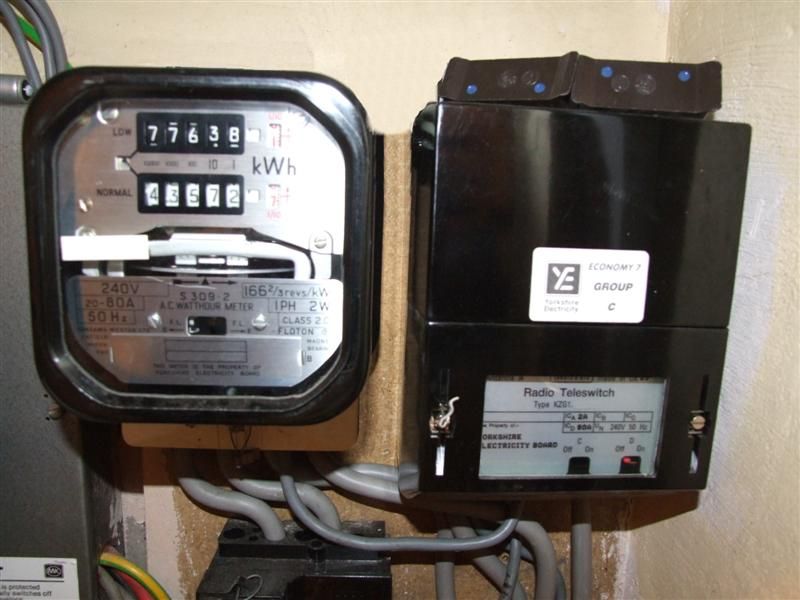Energy Contracts for Micro-Businesses

When starting a new business, the list of tasks to get you up and running can seem endless, so managing your energy bills might not be viewed as a priority. However, securing the best energy contract for your new business is crucial. If you are stuck on out-of-contract rates, your energy bills can be up to 3x more expensive, meaning your monthly expenses can increase massively!
What Is a Micro-Business?
A microbusiness is a business which employs less than ten people and turns over less than £1.8 million annually. Additionally, if your company employs more than ten people, it could still be counted as a microbusiness - if you use less than 100,000 kWh of electricity per year or less than 293,000 kWh of gas per year.
If you’re unsure how much energy you use in a year, you can find out by contacting your supplier, checking your bill or asking us - our energy experts will be more than happy to help.
There are currently 5.2 million micro businesses throughout the UK. Qualifying as a micro business gains you access to a wider range of business energy providers, some familiar household names such as EDF and others less known to those outside of the business industry.
How Are Energy Contracts Different for Micro-businesses?
Greater Transparency: Your energy suppliers must be completely upfront with you about all the key terms of your energy contract, including any third-party costs and broker fees. This is to ensure that you know the exact prices you will be paying.
Termination Notice: For most SMEs, you can’t shop around for other contracts until approximately six months before the end of your current contract, although we have a selection of suppliers that will allow you to secure your tariff up to 12 months in advance. Suppliers can no longer insist on a 30-day notice period to end an energy contract for microbusinesses. The only exception to this is if a commercial deal expires and you are put on out-of-contract rates.
Back Billing: If your supplier has erroneously invoiced you, you may receive surprisingly large energy bills. Energy companies can only back-date bills for the past 12 months. You should provide your supplier with frequent meter readings (around one a month) to ensure your business is correctly billed.
Unique Products and Services: Micro-businesses have access to a surplus of services compared to larger businesses. They can access renewable energy, efficiency services, and special government grants/schemes. This is especially ideal for micro businesses looking to reduce their carbon footprint and save on energy bills.
Better information on the energy market and your rights: Citizens Advice offers microbusinesses free access to up-to-date guidance and advice on consumer rights and how the market operates.
What should you look for once a contract has been arranged?
If you run a microbusiness, you’ll receive the following information from your energy supplier when you agree to a new contract:
- The key terms of the plan before you sign up for it. This information should be provided whether you use a broker or purchase directly from the supplier.
The terms and conditions for the contract should include renewal terms for fixed-term plans. You should receive this within ten days of signing a new contract.
- Information regarding the contract end date and the latest date you can give notice to terminate a fixed-term contract (if applicable).
When your energy contract is due for renewal, you should be provided with the following information:
- A renewal reminder explaining what your options are. You should receive this around 60 days before your contract ends. This includes your current rates, annual consumption, and any new rates the supplier wishes to offer for your next contract. It is best to shop around for other prices before deciding whether you want to renew with your current supplier, as it is rare for the renewal rates being offered to be the cheapest on the market. If you would like help finding the most affordable prices, Get a Quick Quote
Types of Tariffs
Fixed tariffs - A fixed business tariff allows you to lock in your unit rates and standing charge with your supplier for a fixed amount of time. Fixed tariffs are usually cheaper than other ones, but you should always get a price comparison before agreeing to a contract to ensure you get the best prices on the market. If you would like help doing this, then Get a Quote.
Out-of-contract rates - If your fixed contract ends without a new one being arranged, your supplier will place you on out-of-contract rates. These are usually more expensive than rates offered on a fixed tariff, but you can switch suppliers anytime. If you are on out-of-contract rates and want to save money on a fixed tariff, contact us.
Deemed rate tariff—Deemed rates are similar to out-of-contract rates but only apply to customers who have moved into new premises or have processed a change of tenancy and have not yet agreed to a new contract. Deemed rates are also often more expensive than fixed tariffs, so if you think you are on deemed rates, you should arrange a price comparison.
Rolling contract: A rolling contract rolls you onto a new, year-long contract at higher rates when your contract ends. Before signing an energy agreement, you should ensure you are not agreeing to a rolling contract, although it isn’t as common as it used to be.
How Can My Micro-Business Secure The Best Energy Prices?
To ensure you get the best energy prices, you should run a price comparison to ensure you get the best rates on the market. Purely Energy can help you with this. Understanding your energy usage can also make a huge difference in saving on your energy bills. Purely Energy has now released our new energy management software- Insights. Track your usage in real-time to identify any inefficient equipment or to find out where energy is being wasted as it is happening. If your business classifies as a micro business, you could be eligible for government grants or schemes, such as VAT reduction or CCL exemption.
How can Purely Energy help?
If you would like us to help you secure the best rates on the market for your micro business, contact us. Alternatively, get a quick quote.
If you have any queries about microbusinesses or would like help lowering your energy costs, contact us at 0161 521 3400 or Info@purelyenergy.co.uk.
Megan Glover of Purely Energy wrote this article. If you have any suggestions or questions, please get in touch with us.




